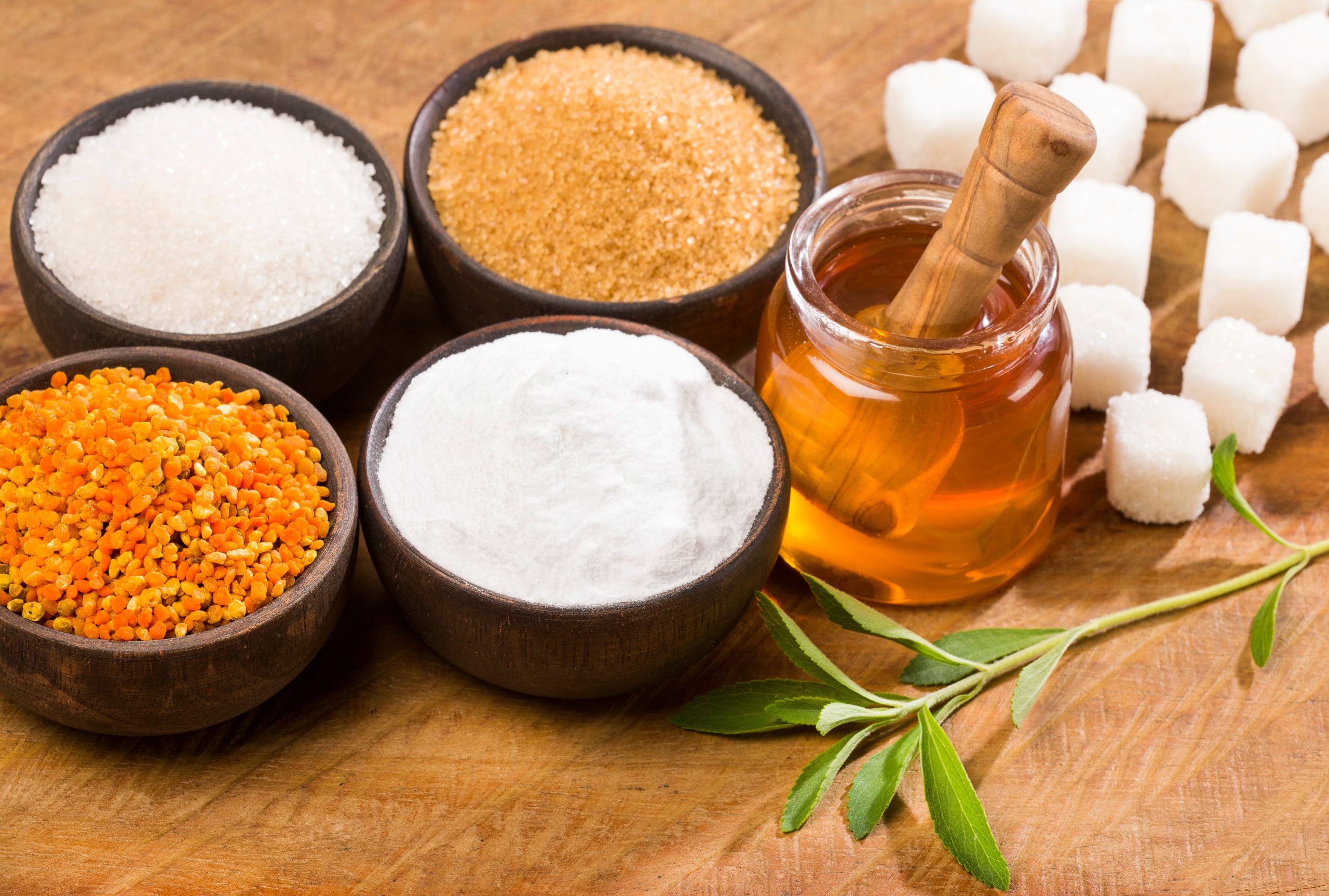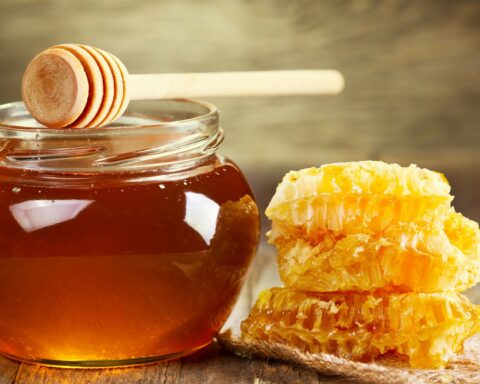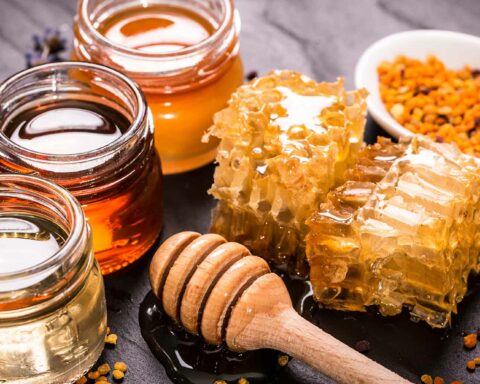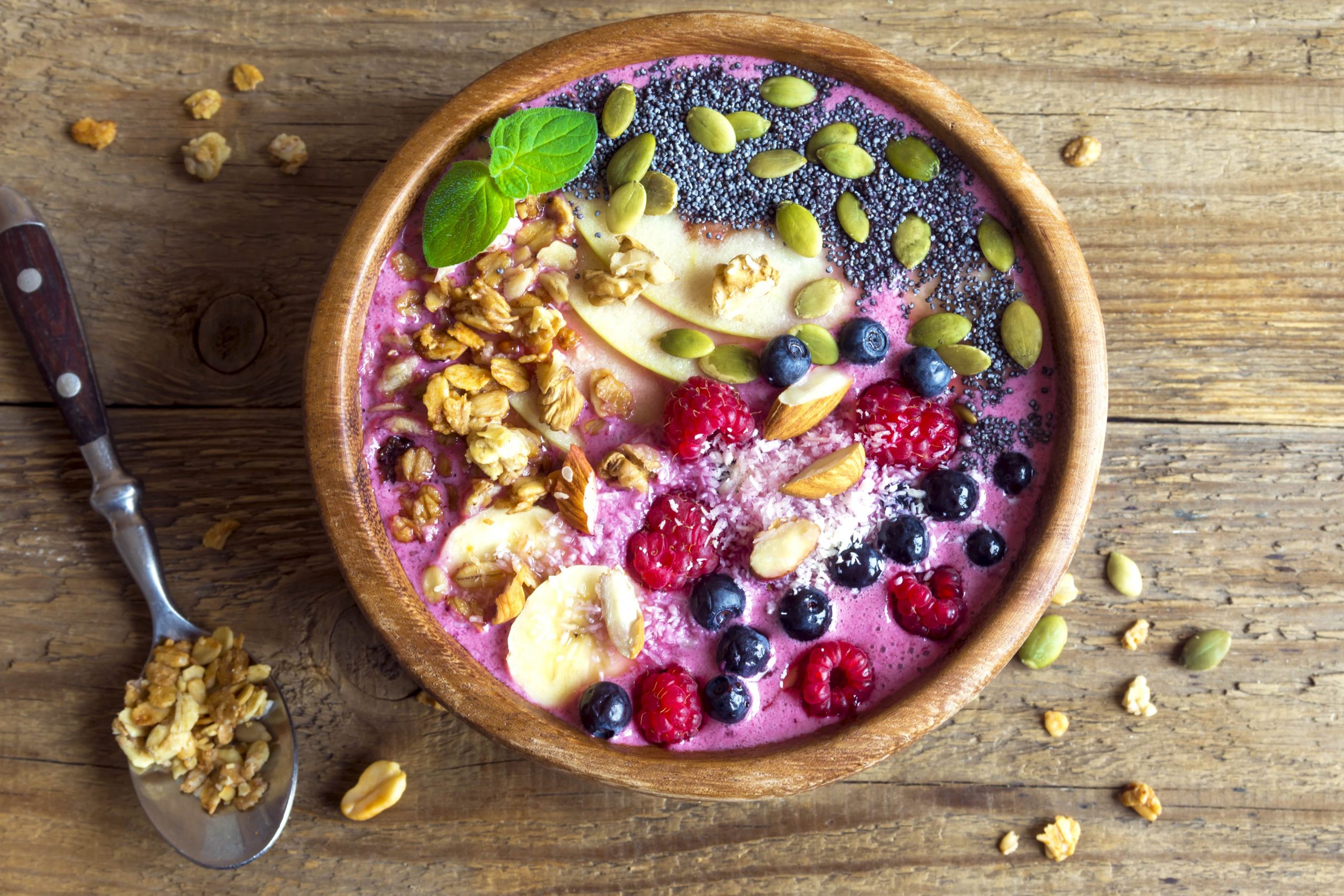Honey and sugar are two sweeteners primarily consisting of glucose and fructose, meaning they are both sugars. Both are loaded with calories and can cause sugar and insulin spikes. While honey may seem healthier than sugar, these two sweeteners need to be consumed in moderation because they all have health impacts in excess amounts.
Honey and sugar are simple carbohydrates made up of fructose and glucose. They are both used in baking and sweetening different meals. Raw honey is associated with several health benefits, including boosting the immune system, fighting pathogens and infections, healing wounds, and alleviating allergies. Besides, it has trace amounts of vitamins, minerals, and other health-promoting compounds, but all these do not come without the many calories packed in it. Contrastingly, sugar has fewer calories and is naturally available but is associated with diabetes type 2 and other health conditions. As such, you may wonder which of the two options is healthier and worth going for. Dive into this article to get the answer to this question.
What you need to know about honey
Honey is the thick yellow/brown/golden liquid produced when bees change complex sugars in plant nectars into simple sugars. This sweetener comprises fructose and glucose, meaning that it is a simple carbohydrate. It is easily digested and quickly absorbed into the bloodstream and may result in sugar and insulin spikes when taken in excess amounts.
Raw honey is nutritious, but this largely differs depending on its origin. The world has 300+ honey types, including tupelo, firewood, buckwheat, alfalfa, wildflower, and eucalyptus. Besides, honey colors and flavors also differ widely, with some like firewood having a tea-like taste and being translucent and buckwheat being malty and brown-like. Nonetheless, they all cause sugar and insulin spikes since glucose and fructose remain to be the basic ingredients.
Honey may have health benefits
Many people have a soft spot for honey and think positively of it, although it is not a health food. Here are the top reasons why honey is highly regarded by many;
- It has antioxidants, primarily flavonoids which help neutralize free radicals to protect the cells and tissues from oxidative damage
- It is linked to immune boost, specifically because the antioxidants turbo-charge the system
- It may have anti-inflammatory properties associated with the flavonoids, making it ideal for fighting inflammation and reducing the risk of inflammatory conditions
- It may have other health-promoting compounds, including vitamins such as vitamin C, minerals, enzymes, and amino acids, all of which add up to overall well-being
- It can help wounds and burns heal faster, especially when it is used as a salve in gelatin forms
- It may help alleviate allergies, making it an ideal addition for those sensitive allergens
- It may have antimicrobial properties meaning that it can be used as a preservative
The health perks above sound promising, but it is good to remember that the antioxidants in honey are only available in trace amounts. As such, the health benefits to be realized may not be much. Besides, most honey available in the stores is pasteurized, sapping most of the health benefits from the liquid.
What are the drawbacks of honey?
Honey is an ideal sweetener. However, like any other sweeteners, it has its flip sides, including;
- It has a high-calorie profile, packing 22 calories per tablespoon, meaning that it can easily spike sugar levels and suddenly lead to an energy drop
- The high-calorie profile also means that honey increases one’s risks for obesity, heart disease, and diabetes type 2
- It may not be safe for infants under 2 years since it may have bacteria that cause botulism
- Honey is sticky, and it easily messes up utensils in the kitchen
What you need to know about sugar
Sugar is another calorie-dense carbohydrate used as a sweetener in the food industry. Like honey, it comprises glucose and fructose and equally causes sugar and insulin spikes when consumed in excess amounts. Since sugar is used in making candies, one can easily consume more than planned through these products. As such, it is critical to read through the ingredient list to be sure of what you are taking.
Like honey, there are various types of sugar, including white, raw, and brown sugar. All these are made from sugar cane and sugar beet plants and undergo multistage processing before becoming the granulated table sugar we enjoy. White sugar is what we typically use at home, but it is called raw when it is not fully processed. Contrastingly, brown sugar is a mixture of white sugar and molasses and is also fortified with some trace nutrients because of the molasses.
Why is sugar an ideal sweetener?
Sugar is used at home and in the baking industry because it is an ideal sweetener. This is because;
- It is naturally occurring in the sugar beets and canes, and it only has to be extracted and concentrated
- It is somewhat cheaply sold because of being naturally available
- It packs 16 calories per tablespoon (6 calories less than honey), meaning that consuming it in moderation may not lead to weight gain issues
- It has a longer shelf life; hence can stay usable for long
What are the drawbacks of sugar?
Despite the perks associated with sugar described above, the sweetener also has its flip side. For instance,
- It can also create sugar and insulin spikes since it comprises simple carbohydrates
- High amounts of sugar will lead to sudden energy drop following the sharp rise
- Sugar consumption in excess amounts may increase one’s risks of heart disease, diabetes type 2, and obesity
What next?
Sugar and honey are ideal sweeteners. They are all used in the food industry for baking and at home for sweetening tea and other recipes. However, they all have their advantages, disadvantages, and health implications. Instead of cutting them off, why not consume them in moderation? For instance, you can half the amount of sugar you put in your coffee or tea. Besides, you can use two-thirds of the honey you use for baking. Instead of taking tea thrice a day, why not take yogurt or soup and take tea twice? These, and many other hacks, will go a long way to help you cut down your consumption of these sweeteners while still benefiting from them.
Conclusion
Sugar and honey are simple carbohydrates comprising glucose and fructose. Both are used at home and in the food industry for sweetening recipes. Although sugar packs fewer calories than honey, it is associated with diabetes, heart disease, and obesity. Contrastingly, honey may have several health benefits, but it equally causes sugar and insulin spikes and packs many calories, increasing one’s risk for diabetes and other health conditions. As such, the wisest move is to reduce your intake of each sweetener instead of completely cutting them off.
- Learn to Enjoy Self-care Routine - September 21, 2023
- Jonathan Aufray’s Story - July 29, 2023
- From Public Housing To Ivy League: The Inspiring Journey of Crystaltharrell.com and its Founder - June 7, 2023









